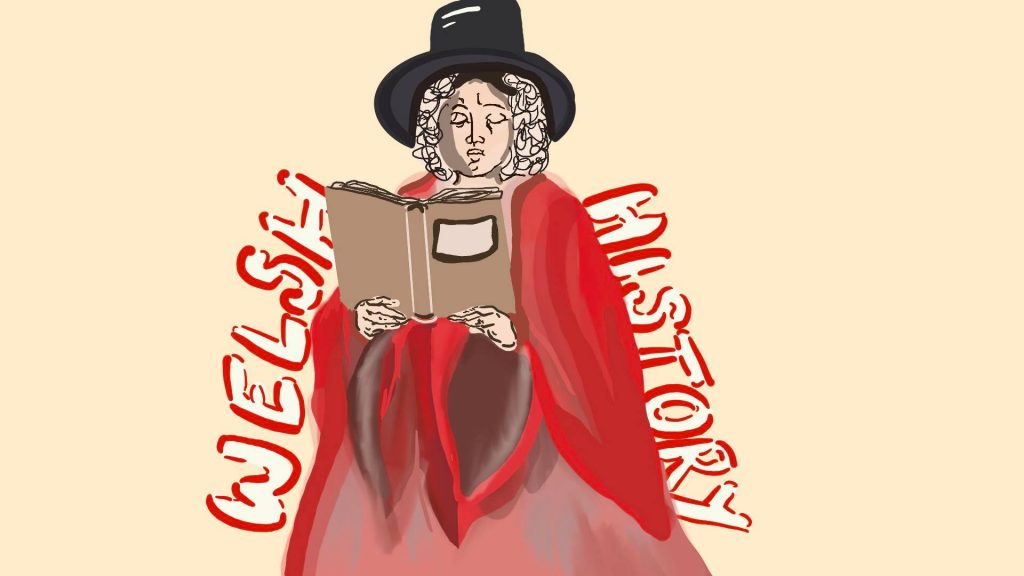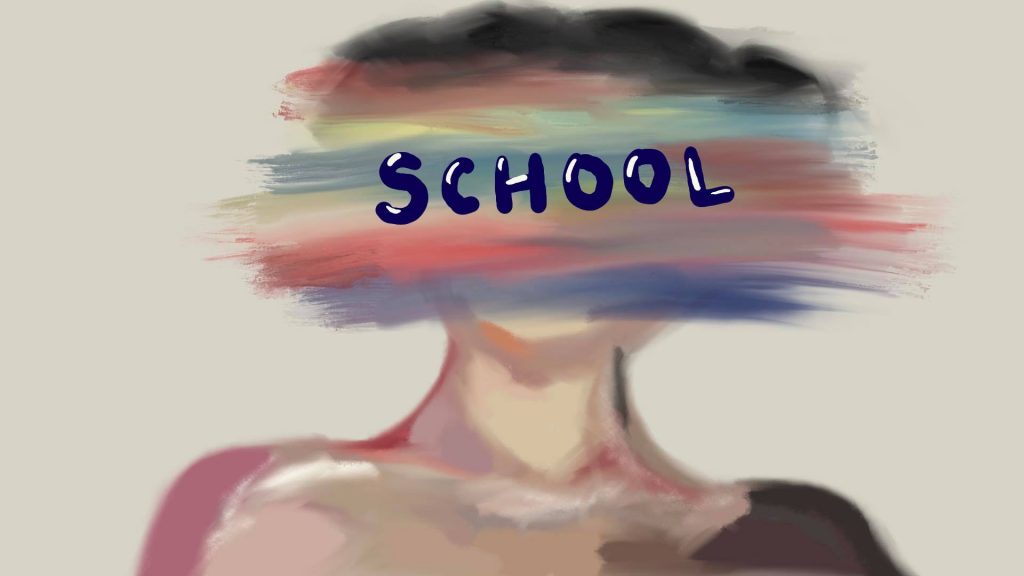What should be taught in schools, and how will these subjects benefit future generations?
Words by: Ella Harper, Emma Williams, Maja Metera, Sarah Rawle, Aruni Deraniyagala
Welsh History in Welsh Schools, Ella Harper
As a Welsh history student, I have recently been thinking about the lack of Welsh history taught in secondary schools in this country. Throughout my years studying history, from year 7 all the way to A levels, Wales barely made an appearance, and if it did it was in the form of a brief sentence on how decisions and events in England affected the nation. No lessons were focused solely on Wales and its own rich culture and heritage. It’s a given that anyone who’s studied history in a Welsh school, even at the most basic level, can remember learning about key moments in British history, as well as events in other country’s history such as Hitlers rise to power or the depression in America. While learning and engaging with British history and the history of other countries is essential in helping us understand how the world developed into what it is today, it raises important questions surrounding the lack of Welsh history taught in Welsh schools.

The Welsh Assembly Culture Committee recently discovered that the teaching of Welsh history within Wales was ÔÇÿpatchy’ and varied across different schools. Concerns that pupils in Wales are not learning enough about Welsh history and culture are long standing and linked to questions of Welsh identity. Learning about significant historical developments in Wales will help Welsh students understand the issues and events that contribute to a national cultural identity within the country. If children are not taught about Wales’ unique culture and heritage, there is a fear that the Welsh identity, that was once deeply rooted in all communities and individuals in Wales, will be forgotten and ignored. Studying Wales’ past will also help pupils understand and appreciate where the country is today and how we got here. Our national story is one that should be told to every child in every school in Wales.
Money, Money, Money! Emma Williams
Perhaps quite sadly, money is what makes the world go round, and yet schools often fail to provide important financial information, such as how to manage your money, or what a credit card is. I was lucky as I took economics at GCSE level and Business Studies for A Levels, so I learnt some of what I needed to know, such as how banks work, how inflation works, what taxes are. However, looking back I realise that we were not given the following information:
- Bank accounts
I am sure that, at some point in life, everybody has to open up a bank account, especially when you go to university or get a job. Therefore, I am dumbfounded as to why my school never taught me, for example, the difference between a current account and a savings account, nor how to choose the correct account(s) for me, and how to open it. I began working at sixteen so I needed a bank account very young, and if it weren’t for my parents advice I would not have known how to, or where to go to open one.
2. Debit and Credit Cards
Once you open a bank account, and put money into it, you can of course begin spending the money from it (granted it does not have limitations which prevent this), but the only way I knew about bank cards was through American television shows ÔÇô you know, the typical teen girl with a credit card takes herself and her gal pals shopping. Before I got my first current account I had no idea what a debit card was, leave alone that it was different to a credit card. Granted, there aren’t as many risks with debit cards, you spend the money until its gone and then the card is declined (if you do not have an overdraft ÔÇô but again we were not taught this), but with credit cards you are literally spending money you don’t have. Though I have never run myself into debt with a credit card ÔÇô because of my economics and business studies, which provided me with an explanation, and a definition of APR ÔÇô I think having a warning about this would have been useful.

3. Money management and debt
Speaking of debt, before the pandemic the Money Advice Service estimated that 8.3 million people in the UK were over-indebted, then in December 2020 The Money Charity statistics revealed people in the UK owed £1,696.4 billion in personal debt. But is that even surprising considering the lack of financial education we receive at school? I think how to manage money effectively should have been a huge part of the academic curriculum because I know people who could literally get through £1000 in a week who are desperate to get a house but just cannot budget to save their lives (and money). Also, I think that it would be useful to know what to do to get out of debt if you do find yourself in it, because I still do not know, other than to go to the bank of mum and dad to bail me out.
4. Taxes
When the bank of mum and dad refuse a loan, we must secure a job to earn an income, but some of this wage goes to the government through taxes. Sadly, as my school did not provide any information of taxes I was not aware of this until I received my first pay slip. Speaking of, I could not even open my first wage slip leave alone read it! Taxes are another extremely valuable piece of information to be taught in school as you can be incorrectly charged (I was), or in the wrong tax band (what do these even mean?), or prosecuted for tax evasion (even if it was accidental).
Emotional Support, Maja Metera
I was always told that schools is not only there to teach but also to aid parents in raising their kids. Then why are we not taught about things that actually matter or are useful in life? Why are taught the exact opposite of the behaviours that should be reinforced?
From the very first day of school ÔÇô at least in my experience, we are taught that intense emotions, self-expression and creativity are bad things. We are told to always say ÔÇÿsorry’ and never talk back to the grown-ups. We are taught that pink hair, dreadlock or nail polish isn’t appropriate.
Then later in life those same people are surprised that we don’t know how to ask for that raise we know we deserve or to say that we should have left work few hours ago. We struggle to find our own voice, express our emotions, talk openly about struggles and be assertive. Those are the things that school should have taught us in order to actually help our parents raise us instead of demolishing every last bit of our self-confidence.
I believe that every teacher ÔÇô especially those who work with the youngest students, should have obligatory training during which they would be taught about how to help the kids to express they anger, sadness and happiness in a healthy manner that would not harm them and those around for example through art therapy, sport or “I” communicates. We should have been taught to name our emotions in a first place ÔÇô but we hadn’t because our teachers didn’t know how to do it themselves.
Moreover, building on the foundation laid by role models on emotional expression (teacher), we should have classes that would focus on building a variety of relationships both personal and professional ÔÇô including the relationship with ourselves. Those would involve:
- steps of non-violent communication so expressing gratitude, concerns, giving feedback,
- assertive behaviours and statements including consent and tackling self-esteem issues because you cannot be assertive if you think that either world or you are not “okay”,
- attachment styles, love languages and how those impact both platonic and romantic relationships,
- affirmations and meditation practises to handle stress.
However, it would be difficult to reinforce as all of the above would mean building a tolerant and open-minded society that would fight old norms and give a voice to those who are currently spoken for ÔÇô to the kids. They are smarter than we all give them credit for.
Mental Health Awareness, Sarah Rawle
School can be a highly challenging time for young people for many reasons, and yet students are not equipped with the tools necessary to talk about or address their problems. During the COVID-19 pandemic, students have faced an unsettling uncertainty around their learning and development, further strained by isolation from their peers. Whilst the pandemic has highlighted the importance of maintaining wellbeing during such a chaotic and exhausting time, mental health should become part of everyday conversation, not just during times of crisis.
Introducing mental health awareness to school curriculums would allow students, teachers, and the greater population in turn, to gain a greater understanding and control over their wellbeing. Teachers should be equipped with the knowledge and resources to promote good mental health, and the ability to recognise warning signs or symptoms in their students in order to provide necessary support. Simply talking openly about mental health in the classroom will show students that they are not going through an experience alone, and that there is nothing embarrassing or shameful about seeking help.

Lack of knowledge including what resources or support are available, as well as the stigma associated with mental illness are significant barriers to seeking help which can be dismantled through education. Introducing discussions of mental health from a young age would help to normalise the conversation and begin to tackle the stigma. It is important to teach young people that everyone has mental health that needs to be looked after, and it is therefore vital to create spaces within which we can talk about wellbeing without fear of judgement.
Self help is an accessible way to implement mental health awareness. Whilst professional support is essential when mental health issues arise, awareness of self help practices would allow students to develop resilience in the face of ongoing and new challenges. For example, incorporating mindfulness or mindful meditation to the classroom would help students to calm and focus their mind in order to develop skills in self awareness and control, empathy, and managing stress. Mindfulness is also particularly effective in dealing with test or exam anxiety as it helps enhance memory and concentration, whilst reducing distractedness.
Talking can save lives. The ability to talk openly and honestly about mental health provides young people with a life skill to carry with them into all future situations. Through teaching mental health awareness, schools can help build a more tolerant and accepting generation, ultimately working towards a society in which mental health is destigmatized.
Sex Ed in Sri Lanka, Aruni Deraniyagala
The very first time I learnt about sex in school was during science. My teacher drew a diagram of the male and female reproductive systems on the whiteboard, explained the reproductive process using highly technical terms and that was that. Every sex-ed lesson that followed was just a repetition of thst first one.
I learnt that sex was something a person could enjoy whilst reading fanfiction. I learnt about contraceptives and safe sex in articles I stumbled upon. I didn’t learn about consent until a friend explained it to me when I was seventeen.
In order to respect the religious and cultural beliefs that make up Sri Lanka, the task of teaching children about sexual and reproductive health has been left to the parents. The problem is that most parents lack the necessary knowledge to do this. As a result, we end up with a generation that believes that the clothes you wear are a sign of consent and that homosexuality is result of drinking beer (yes, this is an actual thing a person of authority said, out loud, in public).
A couple years ago, the Ministry of Health and theh Ministry of Education in Sri Lanka released a textbook aimed at teaching sex education to children in grade seven. The book was later recalled due to the controversy it created. Many were worried it would corrupt their children; the most common concern being that it explains that masturbation is something that’s perfectly healthy, even for girls, as long as it doesn’t become an addiction.
Personally, having read a pdf version I found, I believe the book could have been extremely beneficial. It discusses the symptoms of menstruation and how to tell whether the pain you’re dealing with is normal or something you should talk to a doctor about. It teaches consent and warns that sexual assault is something that can happen to anyone regardless of gender.
These are all lessons I would have appreciated being taught as a child and hopefully, they’ll be introduced into the curriculum despite the reservations of our rather conservative social values.


